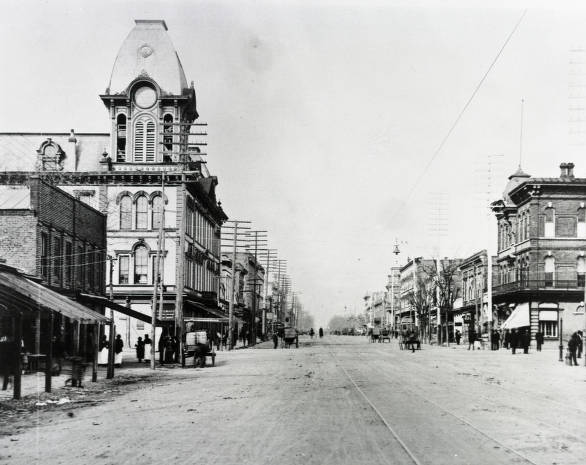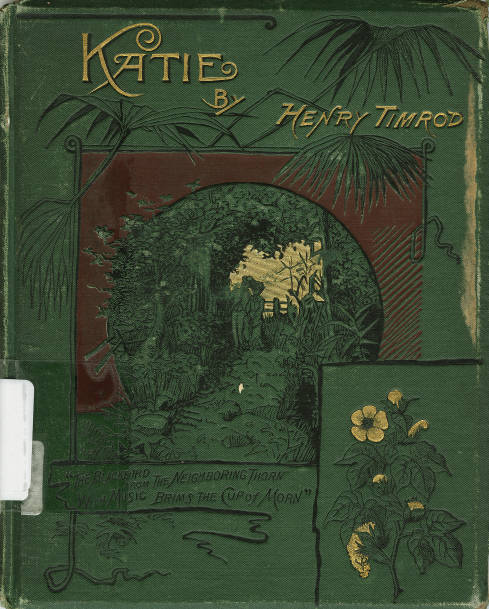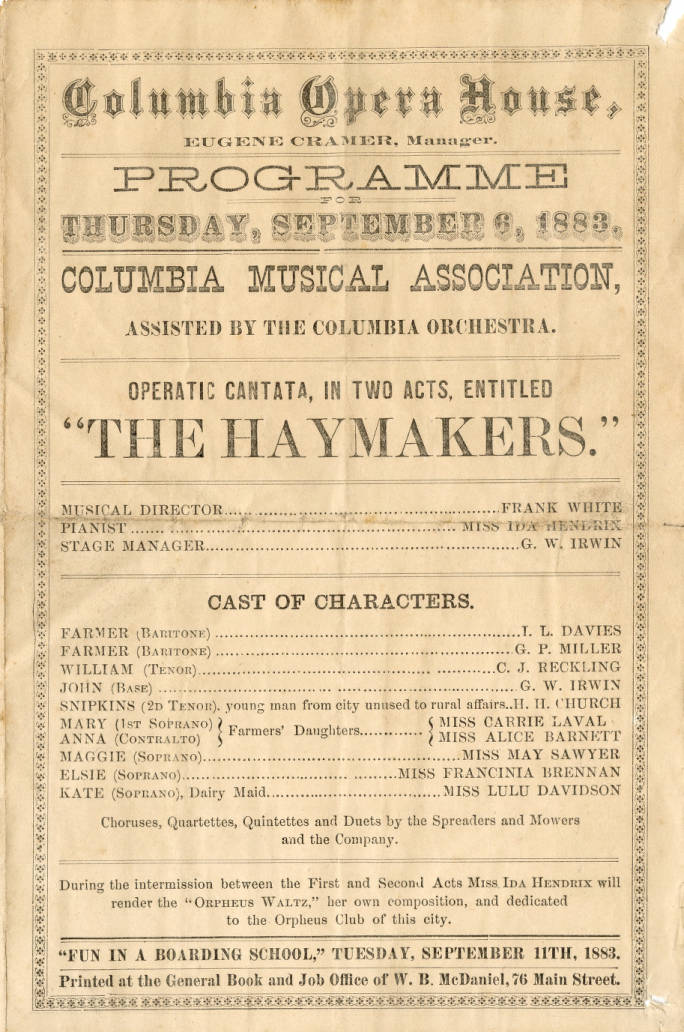- Margaret D.
- Monday, March 06, 2023
Almost lost to history, Mrs. Martha Cramer was instrumental in establishing Columbia’s first public library. We at Richland Library owe her a debt of gratitude for spearheading the creation of our current library system more than 125 years ago.
When Martha Cramer died in 1925, the Columbia Record newspaper described her as “one of the best known and beloved women of Columbia…” It went on to state she lived a life of “usefulness and of good works.” During National Women’s History Month, I’d like to take a moment to share what I recently discovered about this remarkable but obscure woman.
In 1895, Mrs. Cramer was the leading force in establishing a Lend-A-Hand Library in Columbia, SC. Lend-A-Hand was a national organization supported by the Union for Practical Progress which, through generous donations from near and far, provided free or low-cost access to information and reading materials. Mrs. Cramer operated Columbia's Lend-A-Hand library herself from a room in City Hall above the Opera House.
In June 1897, an article in The State praised the efforts of Mrs. Cramer who had created what must have been an oasis for readers in Columbia with “handsome bookcases filled with rare and pleasing literature.” The walls, it described, were decorated with engravings and art. There was comfortable seating. And near the librarian’s desk, a shelf of “hot house” plants and flowers. She provided reading materials of various types, including literature, fiction, religious materials, health information, children’s books, illustrated books of art, and magazines. Her explicit goal was to reach people of all reading levels and abilities through this library.

By all accounts, Mrs. Cramer was dedicated to her calling. When a fire broke out at City Hall in 1899 and threatened the library, Mrs. Cramer reportedly ran up the back staircase and carried several volumes out before being forced back from the smoke. The fire completely destroyed City Hall, the Opera House, and the Lend-A-Hand Library (with the exception of the few volumes Mrs. Cramer rescued from the flames). But Mrs. Cramer was not deterred! She rounded up donations for more books and continued her work as head librarian at the nearby Columbia Public Library, which was a subscription library started just a few years before (also through her efforts). For the next two decades Mrs. Cramer continued to serve Columbia’s reading public as head of the Columbia Public Library, later known as the Timrod Library, and which ultimately became the Richland County Public Library, or Richland Library, as we know it today. Read more about the library's history here.

Apparently, a love of theater went along with Mrs. Cramer’s love of books and reading. Her husband, Mr. Eugene Cramer, was an actor and scenic designer of some renown. He was also the manager of Columbia's Opera House. Mrs. Cramer dabbled in acting herself and took an active role in establishing training opportunities for young actors through dramatic performances at Columbia's Opera House. Mrs. Cramer's sister, Mary Wilmott Lovell, was noted as an actress of considerable talent and performed in many amateur productions at the Opera House. In fact, in 1896, funds were raised for the establishment of the Columbia Public Library through theatrical productions at the Opera House.

Using the library's genealogy research tools, I discovered that Martha Cramer was born Martha Ann Cooper in 1838 in Salisbury, Massachusetts. Not much is known about her early life except that she was part of a large family and her father, John Rogers Cooper, was an Englishman. Her husband, Eugene Cramer, was a professional actor from upstate New York. Eugene Cramer served in the Union Army during the Civil War, coming South to fight. He was medically discharged in 1863 and worked for the next several years as an actor in various locations, including Charleston. In 1868, Cramer switched from acting to scene painting, and he married Martha Cooper that year too. In 1873, Eugene and Martha, along with Martha’s widowed sister Mary Lovell, moved to Columbia, SC, where Eugene became the manager of Columbia’s Opera House. He held this position until the Opera House burned in 1899.
As librarian, Martha Cramer saw the public library grow by leaps and bounds each year, and packed and moved the expanding library into multiple locations in downtown Columbia with tireless energy. She was the library director from its founding in 1895 until 1922, when she was forced to retire due to ill health.
Mrs. Cramer’s funeral was held on February 22, 1925, at St. Peter’s Catholic Church in Columbia (next door to the present Richland Library Main). It was attended by many who fondly remembered her service. She is buried in Elmwood Cemetery. The inscription on her tombstone reads “Faithful and beloved librarian of Columbia Library for 25 years.” When Mrs. Cramer died her only living relatives were two nieces and two nephews in New York, her husband and sister having predeceased her many years prior. But she left her mark in Columbia through a “good and useful life” well-lived and a library system that remains strong today. We remember you and thank you Mrs. Cramer!


